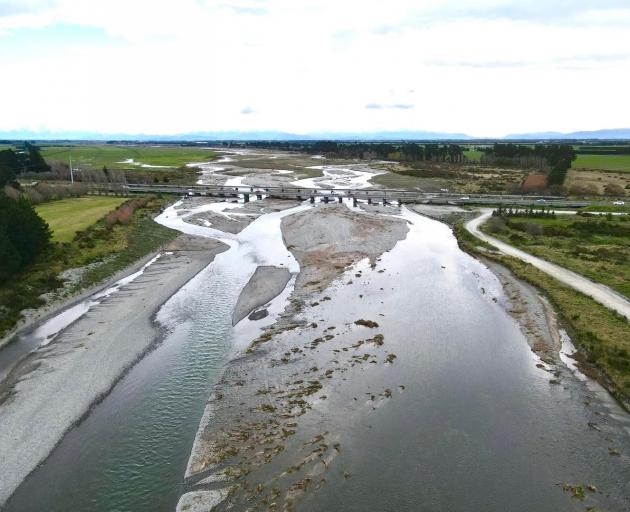
A new pilot study has highlighted the nitrate issues in a Canterbury district, but two incumbent councillors believe work is under way to turn back the tide.
Environment Canterbury councillors received three staff reports on water quality on Thursday, including a pilot study on nitrate-nitrogen and e.coli contamination in private drinking water wells in the Selwyn district.
The Selwyn pilot study tested 18 private wells, with eight found to have nitrate-nitrogen levels exceeding the Drinking Water Standards New Zealand maximum acceptable value of 11.3mg per litre.
Land use in the study area was primarily lifestyle blocks, the report said.
The high nitrate levels in the Selwyn District were the key topic when the ECan candidates for the Mid Canterbury/Ōpākihi constituency fronted the Rolleston community on Thursday.
Incumbent councillors Ian Mackenzie and John Sunckell were at odds with the position of fellow candidate Peter Trolove, while Helen Troy did not attend the event.
Mackenzie and Sunkell both spoke of how ECan and landowners were taking steps to reduce nitrates, but the results will take time.
Sunckell said there will be a rise in nitrate levels before the impact of the reduction measures is evident.
“It will take a generation for that water and those nitrates to flow through.”
“I have confidence that what we have put in place will work for the environment, but right now we are in a pickle, but it will come, and it will get better.”
Sunckell acknowledged there are more dairy conversions going on in the region, and he “is on the record saying we don’t need any more cows in Canterbury”.
“They are not going to provide more nitrate to the environment because those farms, when they convert, must stay under the [nitrate] cap that is already applied”.
Mackenzie said nitrate issues are not unique to Canterbury, and it wasn’t disputed that the growth of dairy farming in the region had resulted in nitrate increases, but growing crops and other animals also produces nitrates.
He said the nitrate reductions are working with “good management practice and on-farm investment in things like variable rate irrigation”.
In “the goldrush days of dairy conversion, there were no limits”, but now limits have been set, and the results of those will take time.
 Trolove disputed his rival candidates' views that enough was being done.
Trolove disputed his rival candidates' views that enough was being done.
He said he is cynical about the “literature coming out of ECan”, suggesting the nitrate reduction plan modelling isn’t reliable.
He said there would hardly be a stream in the Selwyn District that would be under the acceptable nitrate levels.
“We are in a crisis.”
He felt the whole nitrate situation should never have been allowed to happen, “not just for the sake of growing the economy”.
People have been making decisions to “poison our bloody people so we can make money”.
“If you guys have got any brains, you will wake up that you have been screwed, and it would be a good idea to vote for someone with their eyes open”.
At Thursday’s meeting, Sunckell was reluctant to support further regulatory changes when the Selwyn-Waihora zone implementation plan had only been fully operational for three years.
‘‘We have a social contract to a whole bunch of people where we have agreed to a set of actions, and we need to give them a chance to take effect.’’
Mackenzie said landowners can make significant improvements by taking action in their local catchments.
‘‘This council can do a whole lot more by being a little more open about enabling catchment-wide initiatives,’’ he said.
The report sets out a multi-agency approach to address the high nitrate levels, working with Mana Whenua, industry, Te Whatu Ora Health NZ, local councils, and Taumata Arowai, the water regulator.
The report didn’t delve into how much it would cost, or who would pay for it.
ECan estimates there are between 25,000 and 30,000 private wells in Canterbury used for drinking water.
Private well owners are responsible for testing their own drinking water and those on council drinking water supplies can contact their local council if they have any concerns.
-LDR is local body journalism co-funded by RNZ and NZ On Air













